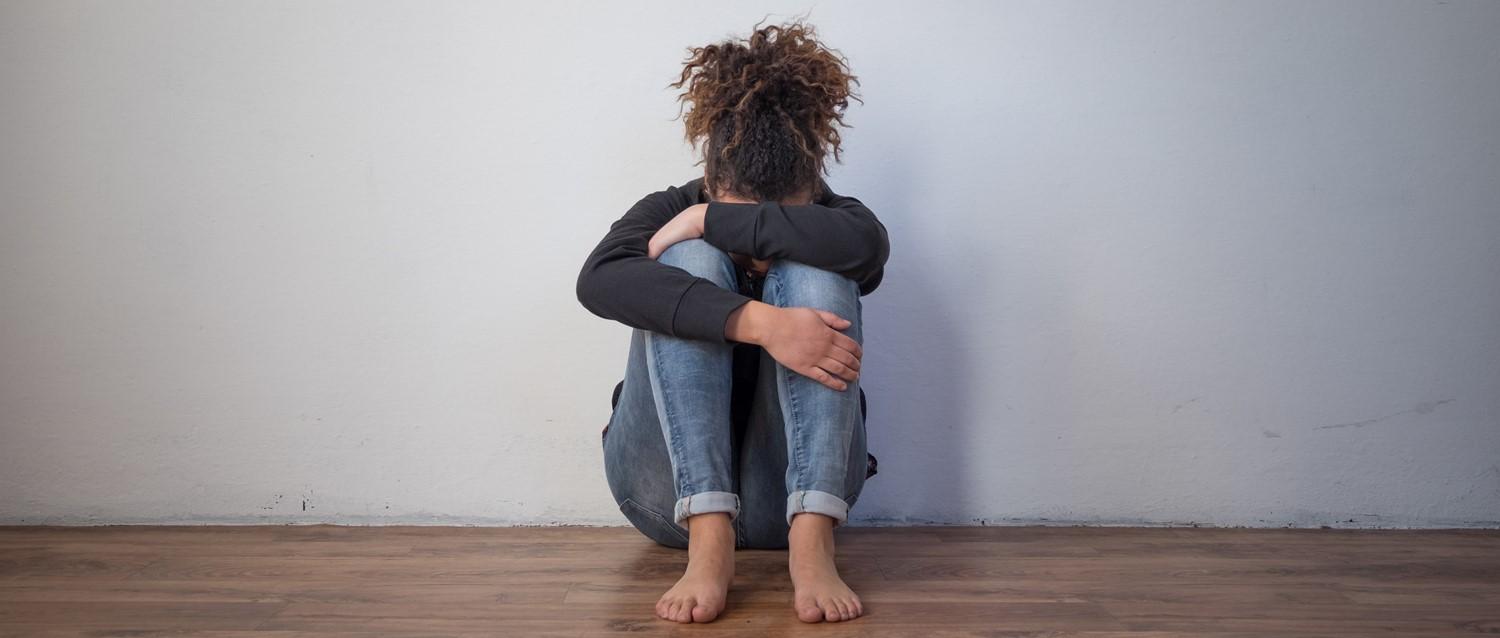
How common is binge eating disorder and how does it affect people?
Peer reviewed by Dr Sarah Jarvis MBE, FRCGPLast updated by Emily Jane BashforthLast updated 15 Mar 2022
Meets Patient’s editorial guidelines
- DownloadDownload
- Share
- Language
- Discussion
Millions of people around the world have eating disorders. Despite binge eating disorder being one of the most common, it isn't given the same attention as some other eating disorders (EDs). However, binge eating disorder can cause severe health issues. If you are struggling, you should reach out to professionals who can help.
In this article:
Continue reading below
What is binge eating disorder?
Binge eating disorder (BED) is a serious mental illness. It involves eating large quantities of food without feeling like you are in control of what you are doing. These episodes of binge-eating usually involve a lack of compensatory mechanisms seen in bulimia, such as purging. Struggling with binge eating disorder can lead to major emotional distress and have physical consequences.
Binge eating disorder is a classified eating disorder under the Diagnostic and Statistical Manual (DSM), which recognises seven types of eating disorders, in addition to 'unspecified feeding or eating disorder'.
The latest edition (the DSM-5) has set criteria to help medical professionals diagnose binge eating disorder. These include:
Recurrent and persistent episodes of binge eating.
Binge eating episodes that are associated with three (or more) of the following:
Eating much more rapidly than normal.
Eating until feeling uncomfortably full.
Eating large amounts of food when not feeling physically hungry.
Eating alone because of being embarrassed by how much one is eating.
Feeling disgusted with oneself, depressed, or very guilty after overeating.
Marked distress regarding binge eating.
Absence of regular compensatory behaviours (such as purging).
How common is binge eating disorder?
The National Institute for Health and Care Excellence (NICE) highlights that while estimates show over 700,000 people in the UK have an eating disorder, this is likely to be an underestimate. It is almost impossible to estimate an exact figure, because not everyone is aware that their eating is disordered and many are reluctant to seek help. Other studies estimate that 1.23-3.4 million people in the UK have some type of eating disorder.
Despite anorexia and bulimia often being the most discussed eating disorders, there's evidence to suggest that people with binge eating disorder are far more common. In fact, anorexia nervosa only represents approximately 10% of all eating disorders.
The estimated lifetime prevalence of binge eating disorder in Europe is around 1.9% for women and 0.3% for men. However, this is merely an estimate, since it is difficult to establish a full picture, as not everyone seeks help for their ED, or acknowledges the problem.
Elena Kunicki is a dietician who helps people overcome binge eating disorders.
She thinks many people struggle on a spectrum of binge eating behaviours, although most will not be officially diagnosed.
"While there are specific criteria for binge eating disorder, so many people fall into a grey area. Maybe they are experiencing binge episodes once or more per week, but they compensate by dieting, restricting the next day, or exercising. While they don't quite fit the criteria for binge eating disorder, they don't fit the criteria for bulimia nervosa either. I think this often goes undertreated and invalidated because they don't believe they have an eating disorder, yet they are still really struggling with eating disorder-like behaviours."
Continue reading below
Misconceptions about binge eating disorder
Kunicki explains how damaging binge eating disorder myths are, as they perpetuate incorrect ideas about the severity of the illness.
Lack of control
"People often wrongly think that binge eating is an issue of 'food addiction'. In reality, it's highly likely someone has a history of restricting or feeling negative about their body, which led to binge eating. They are complex illnesses," says Kunicki.
She believes that a lot of people misjudge binge eating as the same as overeating: in fact, it's a very intense episode that can make someone feel like a completely different person. An episode of bingeing can send someone into a daze until the bingeing ends.
Binge eating disorder is only about food
While an eating disorder is an eating disorder by name, they are much more by nature. All eating disorders have a psychological cause, and are usually linked with severe underlying psychological distress. This may be low self-esteem, poor body image, a sense of lack of control or other emotions. Food - whether bingeing, purging or restricting intake - can provide temporary relief, but is often followed by more self-loathing, which leads to a vicious cycle.
"Binge eating disorder might cause someone to skip class or call in sick to work, either because they are bingeing or because they had a binge the night before and feel so depressed that they can't get out of bed. It can impact intimacy and relationships when someone feels ashamed about their body and they don't want someone to touch them."
She adds that living with binge eating disorder can make someone irritable and anxious, and affect their ability to live in the moment and connect with others, due to being consumed by thoughts about food.
"Binge eating disorder can impact a person's social life if they avoid social situations that involve food or drink because they are worried they might binge. Or, they may be recovering from a binge and feel so physically unwell that they don't want to be seen or to see others," says Kunicki.
Effects after a binge can include:
Sadness.
Exhaustion.
Bloating.
Self-hate.
Loneliness.
Feeling out of control.
Why isn't binge eating disorder spoken about as much as other eating disorders?
"I think binge eating disorder isn't given the same spotlight as anorexia or bulimia because it's perceived as less severe. Anorexia has the highest mortality rate of all psychiatric disorders. The purging with bulimia can cause drastic changes in electrolyte balance and the function of the heart. As a result, these disorders tend to put people in more immediate critical health situations that can be life-threatening. inge eating disorder can as well, but to a different extent," says Kunicki.
"However, it should be spoken about just as much. While binge eating disorder doesn't present the same instant critical health effects, it can still be extremely debilitating."
As well as low self-esteem, binge eating disorders can have severe health consequences in the long term, particularly if they lead to weight gain.
Breathing difficulties.
Trouble sleeping.
Cancer.
Continue reading below
What is it like to live with a binge eating disorder?
Sara's story
Sara, 23, felt scrutinised by her parents for what she was eating as she progressed through school. She says she was always "a little bigger" and "really muscular" in comparison with other girls her age. Sara says she started bingeing around the time that she was diagnosed with depression and anxiety.
"I would buy crisps and sweets to hide in my room and eat so my parents wouldn't see. I hated everything about myself. I wanted to be thinner and I started starving myself, but it wouldn't last more than a week until I binged. I didn't tell anyone about my eating disorder until I was in university. I was ashamed."
She didn't believe she had binge eating disorder because of how little it is spoken about. Because she was neither solely restricting nor purging, Sara didn't perceive herself as "sick".
Diagnosis and binge eating recovery
When she finally felt able to open up to a doctor at university, Sara was referred for therapy.
"I was so relieved to have a diagnosis. I thought I couldn't stop bingeing because I didn't have any willpower."
Sara says the realisation that she was using food as a coping mechanism was a turning point in her recovery. She binged to numb her emotions. Sara refers to the feeling of her binges as a "high", as she didn't think of anything else at that moment.
"I'm still not fully recovered. I do my best to take care of myself, but I can't always prevent binges. But, I'm doing really good right now. I'm making sure to eat enough during the day so I don't get too hungry and end up bingeing, and I do activities that make me happy."
She's learned to use other coping mechanisms and strives for intuitive eating (listening to your body and eating what feels right).
"I want people to be aware of binge eating disorder because I didn't even know what it was until I was diagnosed. People with binge eating disorders aren't just lazy people who don't care about their health. It comes from not listening to our bodies because we are told that we shouldn't."
Emily's story
Emily, 28, kept her binge eating secret for years because she didn't think it was a problem. Her issues initially developed in her mid-teens as she hid food in her bedroom to binge on alone. She was badly bullied at school, which triggered obsessive weight management and restriction with larger binges multiple times throughout the week.
"After university, I qualified as a nurse. The job became stressful so I started skipping meals and bingeing again. My mental health reached a low point and I was placed under the community mental health team for help with anxiety, panic attacks and depression. I saw a doctor whom I felt comfortable with and told him I was in a cycle of restricting then bingeing," says Emily.
She was referred to eating disorder services and had outpatient appointments.
"I had never considered myself to be a 'patient' before - I guess because I was always on the other side as the professional."
Emily's binge eating recovery process
Emily believes her recovery varies now, as she is "slightly in denial" about how her binge eating disorder has affected her life, particularly after others have been dismissive.
"I'm potentially going back to eating disorder services in the future. I need to work on my body image and my relationship with food.
"I wish people understood that someone who is suffering from binge eating disorder may do anything to hide their binge eating. But I want anyone struggling to know that they aren't 'greedy' or a bad person. BED can destroy you, but it does get better."
Binge eating disorder treatment
Treatment for binge eating disorder can be a lengthy process since it involves altering someone's mindset alongside their eating habits. Since everyone's experience with an eating disorder is unique, treatment plans are specially tailored to ensure the patient can get the most out of recovery.
Treatment for binge eating disorder might include:
Dietician sessions to curate a stable eating plan and teach someone about nutrition.
Psychotherapy (such as cognitive behavioural therapy) to develop healthy attitudes towards food and coping mechanisms.
Group or family therapy if the binge eating disorder has affected loved ones, as they attempt to understand the person's disorder.
Specialist treatment in some circumstances for weight management or physical damage caused by binge eating disorder.
"So many people are struggling on the binge eating spectrum. Diet culture is so pervasive, we must consider how societal messages about thinness and health can contribute to binge eating disorder," says Kunicki.
"I binge ate myself for four years and I've worked with people who struggled for 10 or more years. But, they broke free. And you can too."
If you are struggling with binge eating, you should make a GP appointment. You can also contact Beat, the UK's eating disorder charity, 365 days a year on 0808 801 0677 or beateatingdisorders.org.uk.
Patient picks for Eating disorders

Mental health
Do shrinking fashion sizes promote anorexia?
Shop mannequins and dress sizes seem slimmer and smaller than ever before - but do they really skew our perception of 'normal' body shapes and fuel eating disorders? We take a look at the main issues surrounding the debate.
by Danny Chadburn

Mental health
How to manage pregnancy when you have an eating disorder
Pregnancy can present a number of challenges for people with eating disorders. It is a period of great change as a new life is created. Eating disorders in pregnancy can also develop, even if someone hasn't experienced one before. In both instances, it's important to practise self-care and establish a trustworthy support system that can offer advice and help you when triggers arise.
by Emily Jane Bashforth
Article history
The information on this page is peer reviewed by qualified clinicians.
15 Mar 2022 | Latest version

Ask, share, connect.
Browse discussions, ask questions, and share experiences across hundreds of health topics.

Feeling unwell?
Assess your symptoms online for free
Sign up to the Patient newsletter
Your weekly dose of clear, trustworthy health advice - written to help you feel informed, confident and in control.
By subscribing you accept our Privacy Policy. You can unsubscribe at any time. We never sell your data.